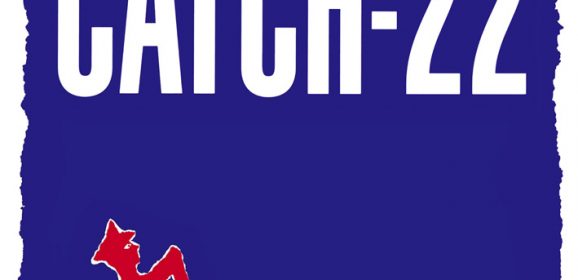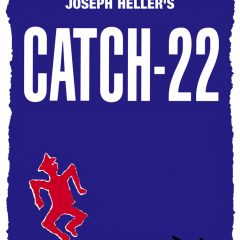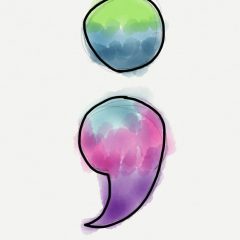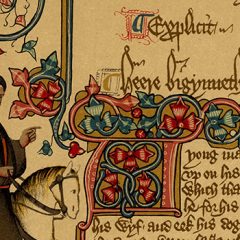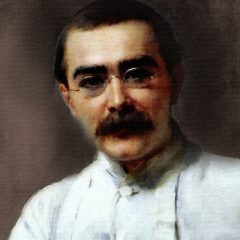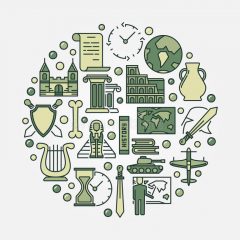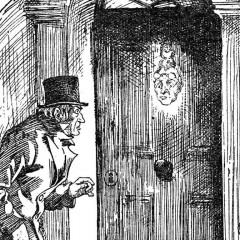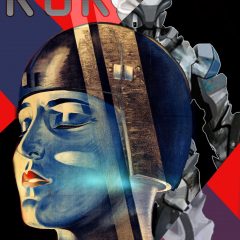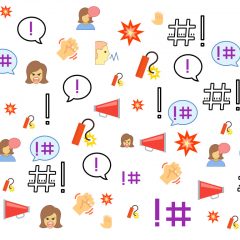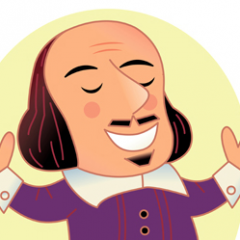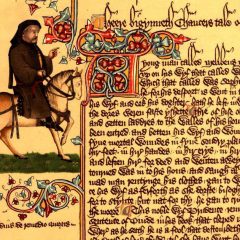What’s the Meaning and Origin of the Phrase Catch 22
The phrase “catch-22” is, in short, common parlance for when someone is trapped in an inescapable dilemma. But where does the phrase come from?
How the food of Charles Dickens defined Christmas – plus an Alternate Christmas Recipe
Charles Dickens was a serious food lover. His literature introduced a festive menu that has barely changed since the Cratchits gathered round their table in “A Christmas Carol”. In Dicken’s novel “Little Dorrit” the character John Chivery is rewarded for running “mysterious missions” with a banquet, for which Miss Rugg “with her own hands stuffed a leg of mutton with oysters.” Here is that menu.
Some Chaucer Factlets
If you thought that Geoffrey Chaucer was only a middle English poet and writer then we have some Chaucerian faclets to show that he was this, and a lot more.
The Semi-Colon – What’s the Point? & How to Use it
One of the most misunderstood punctuation marks in in the English Language – the Semi-Colon. So, whats the point of it and how should it be used ?
English Words that Used To Have Vastly Different Meanings To What We Understand Today
How would you rate your vocabulary ? Average; Better than Average ; Exceptional ?
It may not matter how good you think your command of English is because in this article we reveal some surprising revelations about some of the words, you may have thought you had a thorough understanding of, had, in point of fact, some VERY different meanings in the past.
English Language History : What Caused the Great Vowel Shift?
English is arguably the single most important and influential language in today’s world. It does however contain many vagaries and annoying inconsistencies. One of which is the variations of how vowel combinations should be pronounced. For example, the ‘ea’ in ‘bread’ is pronounced the same as the ‘e’ in ‘bred,’ and not the same as the ‘ea’ in ‘break. This is down to “The Great Vowel Shift”
5 Words Introduced to the English Language by Rudyard Kipling
Shakespeare is often credited as a the most prolific contributor of many of the words we use today in the English language. However he’s not the only venerable writer to do so. Rudyard Kipling, author of The Jungle Book, was also a highly prolific contributor, coining and popularising many words and phrases still in use in modern English.
English Words that Used To Have Vastly Different Meanings To What We Understand Today
How would you rate your vocabulary ? Average; Better than Average ; Exceptional ?
It may not matter how good you think your command of English is because in this article we reveal some surprising revelations about some of the words, you may have thought you had a thorough understanding of, had, in point of fact, some VERY different meanings in the past.
English Words that Used To Have Vastly Different Meanings To What We Understand Today
How would you rate your vocabulary ? Average; Better than Average ; Exceptional ?
It may not matter how good you think your command of English is because in this article we reveal some surprising revelations about some of the words, you may have thought you had a thorough understanding of, had, in point of fact, some VERY different meanings in the past.
Dickens’ “A Christmas Carol” – more than just a good story
Scrooge’s transformation from miser to generous spirit is an uplifting tale. In fact, it’s so cheery that it’s one of the few books that has actually changed
society.
From Robot to Airy-Fairy to Cyberspace – 10 Beautiful Words Coined by Famous Writers
If you look at the number of words in the English language you’ll find that estimates vary between 500,000 and just over 2 million, depending on how you count them. You will find that some of these words were simply “made up” by various authors at one time or another but they’ve proved so popular that they’ve entered our everyday lexicon like Robot, Airy-Fairy, Banana Republic, Cyberspace, Co-ed and many more.
Insults We Should Bring Back
There’s something deliciously satisfying in a well timed, properly placed insult or barb. In this article we look at a rag tag collection of insulting words and phrases we think should be brought back along with a miscellany of insulting zingers and factlets.
Emoji Shakespeare – Can you Guess what the Shakespeare Quote is from these Emojis ?
Shakespeare’s plays and quotes are always a good source for visio-cryptic style quiz questions. So in this article we’ve gathered together some cryptic Emojis we found floating around the internet, so see how many of Shakespeare’s eponymous quotes, or names of his plays you can name
English Words that Used To Have Vastly Different Meanings To What We Understand Today
How would you rate your vocabulary ? Average; Better than Average ; Exceptional ?
It may not matter how good you think your command of English is because in this article we reveal some surprising revelations about some of the words, you may have thought you had a thorough understanding of, had, in point of fact, some VERY different meanings in the past.
What did Middle English (the language of Chaucer) Sound Like ?
English, with all its vagaries and annoying inconsistencies, remains the single most important and influential language in today’s world. English language has been subsequently divded into about 5 distinct periods. Middle English, the language of Chaucer, is one of the most notable. But what did it sound like ?

